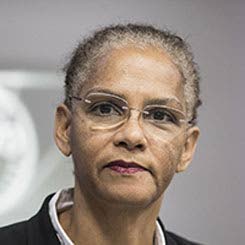Business
Ryan Hamilton-Davis

TONY Rojas Gil, general director of projects in Mexico and the Mexican Agency for International Development Cooperation (AMEXCID), said a strategic framework is needed to address climate challenges in the Caribbean.
He was speaking at the Food and Agriculture Organisation (FAO) two-day virtual workshop on climate finance through the Resilient Caribbean Initiative.
The FAO’s workshop titled, Adapting Caribbean Food Systems to Climate Change – Challenges, Solutions and Investment Opportunities, kicked off on February 27, with FAO addressing issues concerning climate change and food security.
Rojas Gil said while the initiative started in 2018, it was re-established in 2020.
“This webinar is looking to be a catalyst for projects,” he said.
Sub-regional co-ordinator for FAO, Renata Clarke, reminded participants that climate change disproportionately affects the Caribbean through limited food security and extreme weather patterns.
While Sasha Jattansingh, a climate finance and participatory environmental governance professional, highlighted the realities of climate change, providing scientific evidence that climate change is real.
Programme manager of agriculture and agro-industry development in Caricom, Shaun Baugh, added that the Caribbean feels the brunt of the pressures of climate change.
“We are seeing the loss of income and sometimes the total wipe-out of entire livelihoods,” Baugh said. “We need a frank conversation on timely climate financing.”
UWI St Augustine campus researcher, Ronald Roopnarine, said the direct impacts of climate change on food systems, saying it greatly affected production, had a direct and deleterious effect on crops and livestock, contributed to the rise in sea levels and coastal erosion and could also have an adverse effect on public health, with the release of new diseases or the re-emergence of dormant ones.
The session also highlighted several initiatives which had impacts on food security, including initiatives which used drone mapping for better decision-making in management of the agriculture sector and data gathering on rain patterns for better impact on crop production.
